The Inca Trail is on many bucket lists and is known as one of the best treks in the entire world. Sure, you might be imagining retracing ancient steps or entering Machu Picchu for the first time, but what about everyone who helps you make that happen?
First, you’ll be in touch with a tour agency or operator to organize your trek. Next, you’ll meet your guide at a briefing. Finally, once you’re ready to start hiking, you’ll meet your cooks and porters.
It’s no secret that in the past porters have been taken advantage of, and not only in Peru but across the globe. They go on trek after trek and carry all your belongings from one camp to another. They are an essential part of the trekking team, and it’s unlikely that you’d be able to make it to the end if you had to carry everything yourself.
Porters make your trekking experience much more comfortable and a lot easier. They put in a lot of physical effort to ensure your things are safe and looked after.
In reality, the porters who work on the Inca Trail in Peru are far better off than many others around the world, but it doesn’t mean they aren’t open to exploitation. However, in 2001 a law was put into place to protect the porters and their worker’s rights.
The laws make it much more difficult to take advantage of the porters and have made their working environment a much happier one. So, let’s take a closer look at what it all entails.
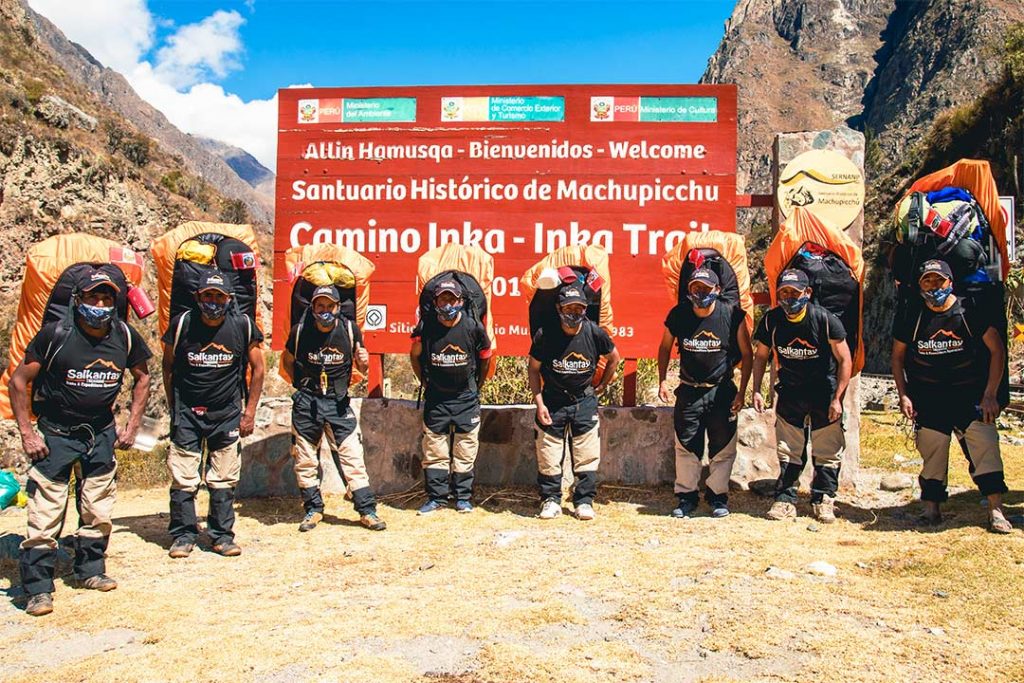
Worker’s Rights for Porters in Peru
Below, we go into more detail about the rights porters now have when it comes to their workload, pay, and more.
What are Porter’s Wages?
With the laws that were introduced by the Peruvian Government, one stated that the minimum wage for a porter should be around 43 soles a day, which works out to be about $13. This is pretty good in comparison to the minimum wage in Peru, and if any trekking company is paying less than this, it’s illegal.
How Much Weight Can They Carry?
In the past, porters had to carry A LOT of weight as companies would overload them to pay them less. Now, there’s a maximum weight limit in place that states they can’t carry more than 20kg. This includes 4kg for their personal belongings like blankets and clothes.
To ensure that this law is abided by, porters are weighed at the beginning of the Inca Trail and then again at the start of day two in Wayllabamba. This regulation has been strictly followed since 2002, when it was first put in place. If any company is found to be breaking this rule, they receive a huge fine and can risk losing their license.
Unfortunately, you might sometimes see that companies still try to get around this regulation by asking their trekkers to carry their own bags as they head through the entrance. You can do your bit by making sure this doesn’t happen when you enter the trail.
Some other companies might ask that a porter restricts their personal items so they have more weight for guest’s belongings. Sadly, porters are often scared that their own belongings will weigh too much as some companies will fine them for doing so and deduct money from their wages. Responsible tourism companies won’t be a part of these practices.
What Kind of Meals Do Porters Eat?
One of the biggest differences between the companies that exploit their workers and those that really take care of them is seen in the food they eat. Sometimes they are given the bare minimum to eat and only enjoy whatever’s leftover from the tourist’s meals. A responsible company will ensure that its porters eat a well-balanced and filling meal at every opportunity.
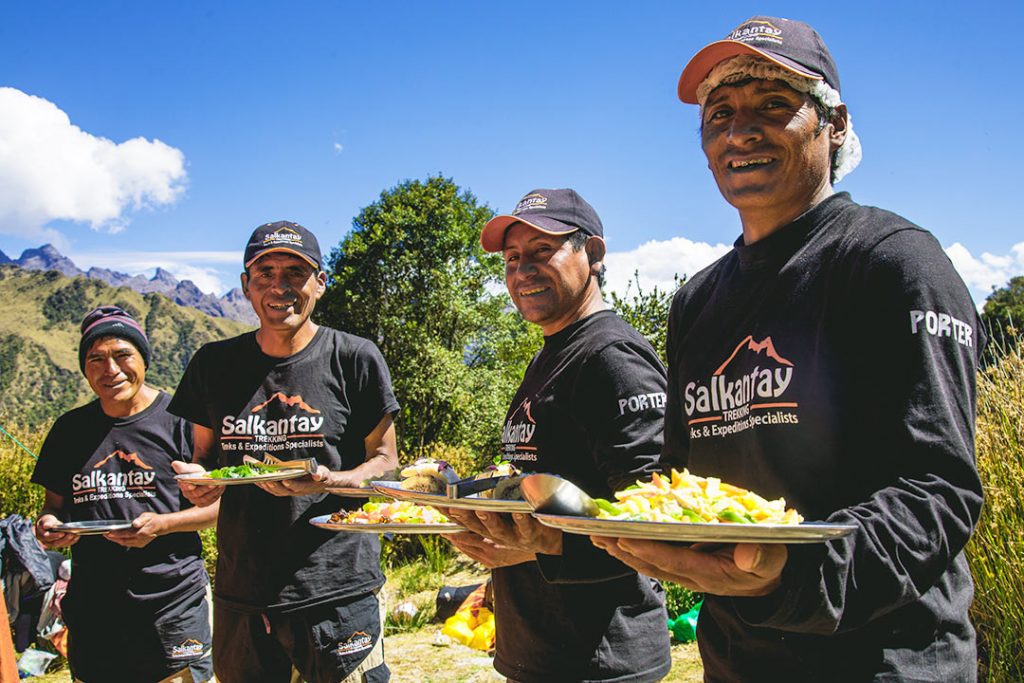
How are the Sleeping Conditions?
Again, this is another big divide between reputable companies and those that are not. In some camps, the porters are all expected to sleep together in the dining room or kitchen tent once everyone else has gone to bed. Sleeping in numbers will definitely keep them warm, but they also rarely have sufficient blankets to cover them. Many sleep on top of a blanket on the floor with one other covering them. On the first night of the trail, you’ll find it’s very cold, and this just isn’t enough.
When a porter works with a tour operator who takes care of their employees, they should receive a sleeping mat, a sleeping bag, and sometimes have a separate tent for sleeping in. Do take care when you’re on the trail and try not to stay up late in the dining tent, as you never know if there are sleepy porters waiting for you to go to bed so they can, too.
How Can You Help the Porters on the Inca Trail?
You now know a little more about the conditions for porters on the trek and what the regulations are to ensure their rights. However, you’ve also read that the rules are still broken often and the porters are still exploited in many circumstances.
For this reason, we’ve put together a few ways that you can help and make sure their experience on the trail is a good one and that they look forward to going to work.
Book With a Responsible Tour Operator
First off, we can’t emphasize enough the importance of booking with a reputable and responsible tourism company. This is usually the main difference when it comes to how porters are treated.
Sure, when looking around Cusco or online for a company to travel with, you’ll see some options that cost far less than others. You might be on a budget and want to book the most economical option possible. However, this comes at a cost to others.
The reason some tours cost less than others is that they’re paying lower wages and not investing much in their employees. When you opt to travel with a responsible company, you can be happy knowing that the porters and other employees are well looked after.
Hire a Porter
If you think you’ll need extra help than what’s already offered by the trekking company, you can opt to hire an extra porter. This will ensure that the ones included aren’t exploited and that you’re helping to give more working opportunities to others who need it most.
Interact With Your Trekking Team
A sad fact is that porters are often ignored on the trails. Perhaps it’s because many trekkers don’t speak Spanish or they often go-ahead to the campsites to get things set up. Whatever the reason, we believe a little extra effort to chat with them goes a long way.
Even if you don’t know any Spanish, you can say hello to them every time you see them, share some coca leaves together, and enjoy singing some local songs. Make them feel a part of your group because they are.
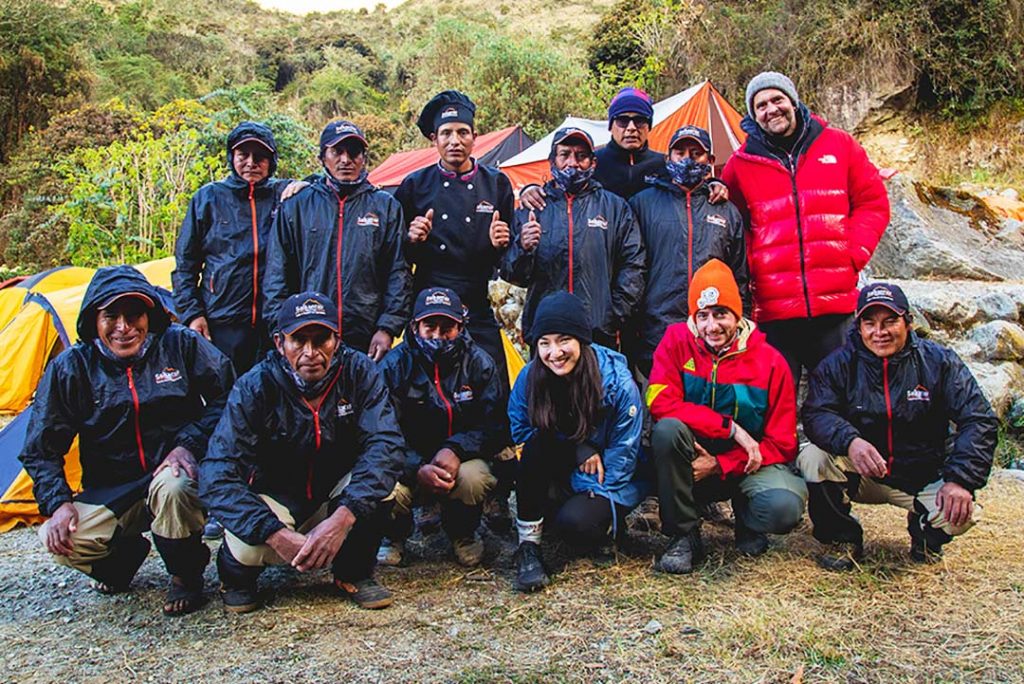
Thank Your Porter for Their Help
When you’re on the trail, you’ll see first-hand how much effort these guys put in when carrying all your belongings and making sure your things are safe. When you think about how much they earn, it doesn’t always seem like enough. Tipping is common practice amongst trekkers, and a little goes a long way. Also, make sure you thank them verbally and show your gratitude and appreciation.
Extra tip: There have been instances where trekkers really want to show their appreciation and want to give porters a lot of money as a thank you. However, it is possible to over tip and this can lead to them expecting more from others in the future, too. It’s best to stick to a sensible amount.
Report Any Negativity Toward Porters
One of the best things you can do to ensure that malpractice disappears is to report any signs of abuse or neglect when it comes to the porter’s working conditions. To begin with, you should report any issue to the guide. Then, if they don’t do anything regarding the matter, you’ll need to kick up a fuss at the office when you get back to Cusco.
If you haven’t been to the office, the next best thing is to send a message or email. Make sure you leave comments on their pages so that future guests know what happened and can look out for similar instances in the future.
Some things you can look out for include the porter’s weight and if you had to carry your own bag through the entrance. You should also check their sleeping conditions and ask if they’re being fed the same amount as you. If you notice anything at all off, report it.
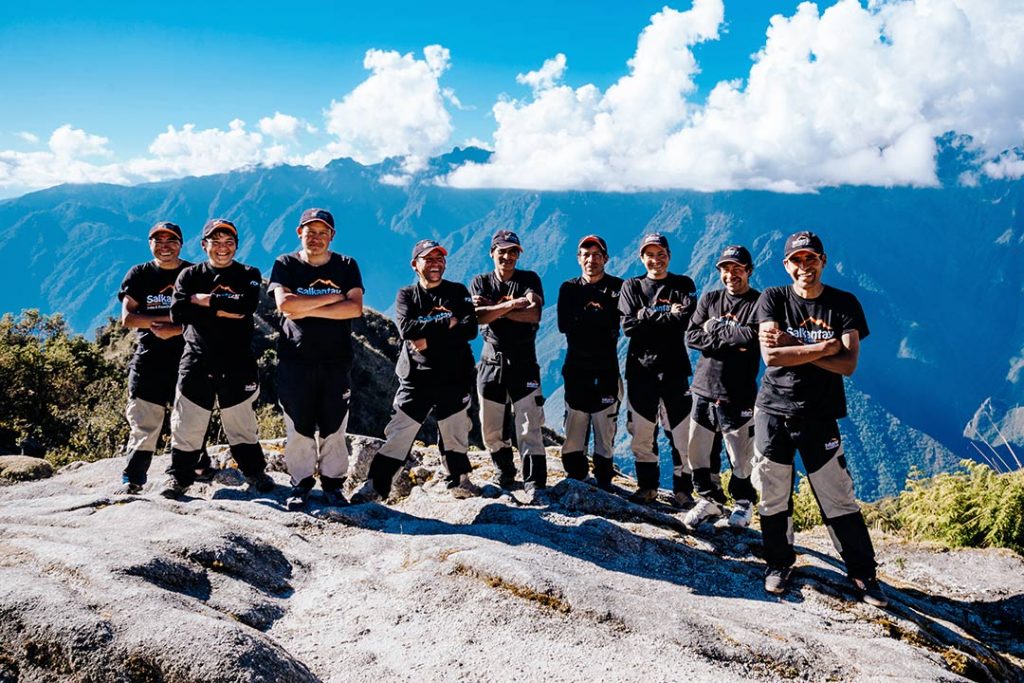
Protecting Our Porters Together
As an agency, we do our bit in ensuring that we follow the laws and want to create a comfortable and enjoyable working environment for all our team. We ask you to look out for anything that doesn’t seem right to you, regardless of the company you travel with.
Report any issues and show your appreciation wherever possible to the porters. Remember to include them in your group and make them feel a part of the whole experience. After all, your trek wouldn’t be anywhere near as enjoyable and carefree without them.
If we all do our bit to ensure the happiness of our porters, we’ll be making their lives better and diminishing exploitation on the Inca Trail.
Written by: Liv Palmer

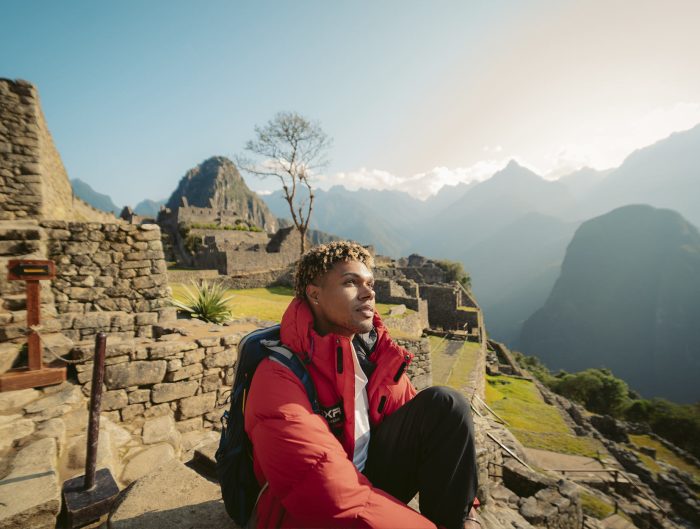


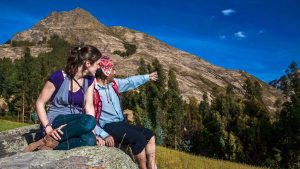

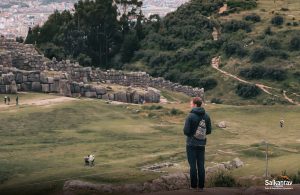


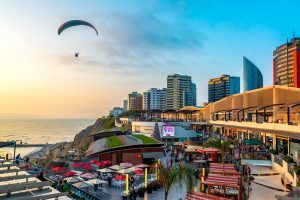

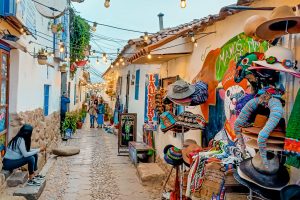


Leave A Reply